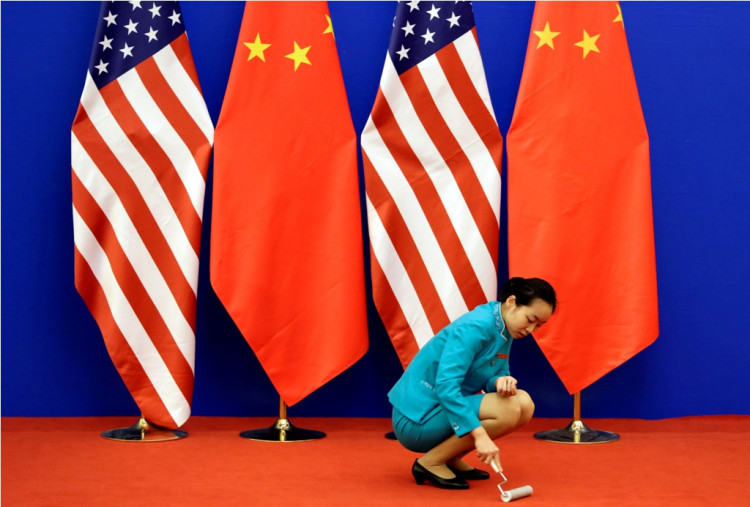The Canton Fair, China's largest and most influential trade expo, opened in Guangzhou this week under the shadow of escalating tariffs from the United States, with Chinese exporters warning that American demand has all but disappeared. Attendees described the U.S. market as "frozen," following President Donald Trump's decision to impose tariffs of up to 145% on Chinese goods earlier this month.
Held biannually since 1957, the Canton Fair has traditionally drawn hundreds of thousands of buyers. But this year's attendance has dropped sharply. As of April 8, about 170,000 overseas buyers had registered-down from a record 253,000 last session. U.S. and European buyers accounted for just 10% of attendees, half the previous share.
"This is just a disaster," said Paul McGrath, a New Jersey entrepreneur whose fresh pet food shipment from China arrived in the U.S. days after new 20% tariffs took effect, adding $5,000 to his bill. "We all knew tariffs were coming, but this is kind of ridiculous," he said, referencing cumulative duties now reaching 145% on most Chinese imports.
Chinese manufacturers, many of whom rely heavily on U.S. clients, are reporting mass cancellations and logistical paralysis. "It's a matter of life and death because 60 to 70% of our business is with American clients," said Candice Li, marketing manager at Conmo Electronic Co., which produces medical devices. "Goods cannot be exported and money cannot be collected. This is very severe."
Li said Conmo may soon reduce staff and cut hours. "How will their salaries be paid? There will be unemployment," she said. Other firms echoed the sentiment. A shipping manager at the fair said roughly 70% of orders bound for the U.S. had been canceled, with some ships recalled mid-route.
David Du, sales manager at speaker-maker Zealot, said a 30,000-unit order from U.S. retailer Skechers had to be paused. The firm is now pivoting to emerging markets like Nigeria, which has overtaken the U.S. in sales volume.
Trump's latest measures not only hiked tariffs on China but granted a 90-day reprieve to other countries, prompting some U.S. buyers to redirect orders to Vietnam and Thailand. Chinese firms, in turn, are investing in Southeast Asia to sidestep U.S. trade barriers.
Canadian appliance manufacturer Forno, which imported 6,000 containers from China last year, is now moving production to Southeast Asia. Founder Jacques Houle said his suppliers are already building new factories outside China, and exports to the U.S. will resume once those facilities come online.
"China's future manufacturing capacity will not be in China," said Dan Wang, China director at Eurasia Group. "It's going to be in other countries by investing in them now, like the ASEAN and global south."
The abrupt tariff hike has also caused ripples in Chinese logistics. According to Ministry of Transport data, cargo volume at China's ports dropped 10% last week from the prior week and 4% year-over-year. Sales managers at multiple firms said the new rates were unsustainable. "When the tariffs rate was around 20% or 30%, we took them seriously, but the numbers now are like a joke," said Vicky Yu, who works at a home appliances firm in eastern China.






